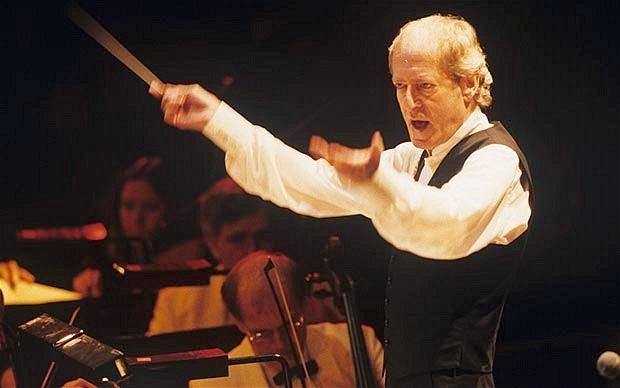There is only a handful of film composers I would rank among the greatest, most prolific, and impactful of our time; John Barry is one of them.
Put him amongst the likes of John Williams, Hans Zimmer, Henry Mancini, and Bernard Herrmann.

His death at age 77 on Jan. 30 in New York is cause to revel in the memories of the man who brought us some the most enduring movie music of all time, starting most prominently with his signature theme for the James Bond franchise.
How fitting that one of Barry’s most dynamic scores was recently released on Blu-ray Disc for viewers to enjoy in its fullest surround sound. Kevin Costner recognized how critical it was to have Barry create the sense of scale for his Western epic “Dances with Wolves,” which Barry did with aplomb, winning yet another one of his many Academy Awards.

Film scores are still underrated as perhaps the key element in almost every movie that triggers our emotions; it’s the music that is usually what sparks both tears and an adrenaline rush. Barry did both better than most. He essentially created the genre of action movie franchise score with music for nearly a dozen 007 films for 25 years from 1962 – 1987, a series which is also credited with establishing the trend of original title songs by pop singers. Yet even without a title song to work with in 1969’s “On Her Majesty’s Secret Service,” Barry managed to deliver perhaps the most definitive score of the franchise in that film. And his music is among the few memorable elements of clunker episodes in the secret agent series such as “The Man With the Golden Gun” and “A View to a Kill.”
Twice in 20 years during the 007 span he enhanced our sense of awe and wonder in Africa with the score and timeless theme song from “Born Free” (he won Oscars for both) and the lush, romantic orchestral swoons in his Oscar-winning “Out of Africa,” the latter largely responsible for a boon in tourism and safaris.
Equally locked into the hearts of a generation is his quintessential score of romance from “Somewhere in Time,” which, more than 30 years later, continues to transcend the listener to a time and place every bit as alluring and fulfilling as the one depicted in the movie itself.
Only a year later he turned that blissful romance into sounds of steamy sexual tension in “Body Heat.”
Among the plethora of genres in which Barry excelled was period pieces, such as his Oscar-winning score for the riveting “The Lion in Winter,” his nominated “Mary, Queen of Scots” and “Chaplin,” and the endearing sweetness in his orchestration for the often overlooked Sean Connery, Audrey Hepburn film “Robin and Marian.”
If you bought and listened to only the soundtracks from the movies noted above, your collection could be considered very comprehensive. Such was the scope of John Barry’s genius and his gratefully extensive career.
— By Scott Hettrick

If this is what passes for acceptable prose, the Sony HD site is in dire need of a copy editor. This piece reads like it was written by a moderately intelligent high school sophomore, and as such does a serious injustice to Barry (whose work is too often overshadowed by the one-trick pony Williams).
Marion,
Baffled by your reference to Sony HD site. But what would you expect from a moderately intelligent high school sophomore? I’ll show this to my teacher tomorrow at middle school — she will be very proud.
But seriously, even if you want to critique the writing, please don’t distract from the purpose the post to praise Mr. Barry.
Would love to post a tribute featuring your writing that would surely do Mr. Barry better justice. Feel free to submit it and I will post as a guest blog, or just submit something here in comments.
Scott